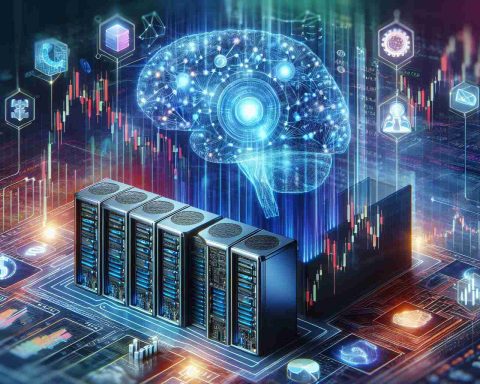G42, a leader in artificial intelligence and cloud computing, has recently announced a groundbreaking partnership with NVIDIA aimed at establishing a climate-focused research facility named “Earth-2” in Abu Dhabi. This collaboration seeks to enhance climate technology by leveraging advanced AI solutions to significantly improve global weather forecasting.
The initiative is built upon the successful Earth-2 platform from NVIDIA, designed to make climate data and weather predictions more accessible using high-precision simulation technologies enhanced by artificial intelligence. In the initial phase of their partnership, G42 and NVIDIA will work on creating a predictive weather model with kilometer-square accuracy to refine weather observation methods.
A key aspect of their alliance includes the establishment of a newly dedicated operations center and climate tech lab in Abu Dhabi, intended for research and development. This center will reinforce the companies’ commitment to environmental sustainability by driving the creation of tailored climate solutions using over 100 petabytes of geological data.
The CEO of G42 highlighted that this innovative endeavor exemplifies their dedication to implementing AI solutions as a means to address the pressing challenges the world faces today. Collaboratively, the two companies aim to develop a comprehensive framework that integrates enhanced predictive capabilities with extensive data, facilitating organizations globally to achieve their sustainability objectives through informed environmental strategies.
NVIDIA’s CEO emphasized the significance of this collaboration in deploying AI to accurately predict climate phenomena, which would ultimately benefit millions worldwide. By synergizing G42’s expertise in AI with NVIDIA’s advanced computing power, this partnership is poised to revolutionize climate solutions, marrying scientific precision with real-world applications.
Advancing Climate Solutions: G42 and NVIDIA Join Forces for Earth-2
In a groundbreaking initiative to combat climate change, G42 and NVIDIA have announced their partnership to establish the Earth-2 research facility in Abu Dhabi. This facility aims to harness advanced AI technologies to revolutionize climate forecasting and drive innovative climate solutions.
One significant aspect of this collaboration is the integration of diverse datasets. Both companies plan to utilize satellite imagery, atmospheric data, and oceanographic information, allowing for a more holistic understanding of climate systems. By combining these datasets with NVIDIA’s state-of-the-art GPU capabilities, the goal is to create more robust and accurate climate models that reflect the complex interactions within our ecosystems.
The project also seeks to engage with local research institutions and universities, aiming to cultivate a collaborative environment that encourages knowledge sharing and innovation. This cooperative effort will help train the next generation of scientists and engineers in AI applications for climate science, thus expanding the talent pool necessary for future advancements.
A pivotal question surrounding this initiative is: What are the key challenges in effectively utilizing AI for climate forecasting? One of the main challenges is the integrity and granularity of the data used in modeling. Climate models require high-resolution data that sometimes is not available, especially in developing regions. Ensuring that data is comprehensive and updated regularly is crucial for creating reliable predictions.
Another challenge is the inherent complexity of climate systems. While AI can enhance modeling capabilities, accurately predicting climate phenomena remains a daunting task due to the multitude of variables involved. Addressing uncertainties in climate modeling and predictions is vital for this initiative’s success.
What are the potential advantages of the G42 and NVIDIA partnership? Primarily, the collaboration could lead to significant advancements in understanding and predicting climate change impacts, which is paramount for policymakers. Furthermore, using AI could enhance the efficiency of renewable energy deployment by optimizing energy storage and distribution systems based on predictive weather models.
Conversely, there are drawbacks to relying heavily on AI for climate action. One potential disadvantage is the risk of over-reliance on technology, which may lead to complacency in traditional conservation and environmental strategies. Additionally, there are concerns surrounding data privacy and the ethical implications of AI in decision-making processes, especially regarding how data is collected and used.
In conclusion, the partnership between G42 and NVIDIA represents a significant stride toward innovative climate solutions. As they work to establish Earth-2, the focus on collaborative research and the integration of diverse datasets lays the groundwork for addressing some of the most pressing environmental challenges of our time.
For more information on advancements in AI and their application in climate solutions, visit NVIDIA and G42.

















